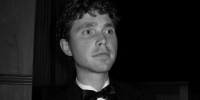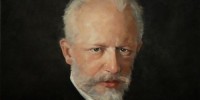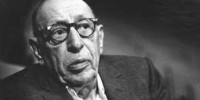ARCHIVE RECORD OF THE PAST EVENT
Magnum Opus II Concert in Collaboration with the New Britain Symphony Orchestra, Admission: $15 Free Will Offering At The Door
Welte Hall | CCSU | New Britain – Concert Program:
Mussorgsky: Pictures At An Exhibition – With visual presentation by Melissa Nardiello / New Britain Museum Of American Art
Tchaikovsky: Concerto For Piano Op. 23 – Nathaniel Baker, Piano Soloist
Stravinsky: The Firebird Suite
3:00 P.M. Gallery Of Paintings By Kris Podkowiak at Welte Hall lobby
3:30 P.M. Pre-Concert Presentation by students of The Virtuosi Music Academy
4:00 P.M. Concert
6:00 P.M. Post-Concert Dinner At “Belvedere” Cafe & Restaurant 82 Broad Street New Britain

 Soloist: Nathaniel Baker, 27, began his formal piano training at the age of 7. His subsequent rise to musical maturity has seen the beginnings of a rich and varied career as a solo performer, chamber musician, music director, and theorist. In the spring of 2010, Nathaniel received his Bachelors in Music from The Hartt School with majors in both Piano Performance and Music Theory. He has studied privately with Luiz de Moura-Castro, Benita Rose and Margarita Nuller and participated in master classes with Paul Badura-Skoda, Diane Andersen, Dmitry Rachmanov, Watson Morrison and Awadagin Pratt, among others. Baker has played in venues throughout Connecticut, including the Connecticut Governor’s Residence, the Mark Twain House, Eastern Connecticut State University’s Shafer Auditorium and Von Der Mehden Recital Hall at the University of Connecticut. He has also performed at the University of Michigan in Ann Arbor, at music festivals in Spain and Portugal, and the Federal University of Minas Gerais (UFMG) in Belo Horizonte, Brazil’s fourth largest city. Baker has appeared as a soloist with the Willimantic Orchestra and the Eastern Connecticut Symphony Youth Orchestra. He placed third in the 2011 Young Artist Piano Competition sponsored by the Connecticut State Music Teachers’ Association. The past few years have seen the development of another one of Nathaniel’s passions: poetry. Nathaniel’s unique blend of dramatic poetry recitation and music has found an audience throughout Connecticut and Massachusetts. In July 2010, this integral aspect of Nathaniel’s career assumed international dimensions when he gave an extensive recitation at the Amalfi Coast Music Festival in Italy.
Soloist: Nathaniel Baker, 27, began his formal piano training at the age of 7. His subsequent rise to musical maturity has seen the beginnings of a rich and varied career as a solo performer, chamber musician, music director, and theorist. In the spring of 2010, Nathaniel received his Bachelors in Music from The Hartt School with majors in both Piano Performance and Music Theory. He has studied privately with Luiz de Moura-Castro, Benita Rose and Margarita Nuller and participated in master classes with Paul Badura-Skoda, Diane Andersen, Dmitry Rachmanov, Watson Morrison and Awadagin Pratt, among others. Baker has played in venues throughout Connecticut, including the Connecticut Governor’s Residence, the Mark Twain House, Eastern Connecticut State University’s Shafer Auditorium and Von Der Mehden Recital Hall at the University of Connecticut. He has also performed at the University of Michigan in Ann Arbor, at music festivals in Spain and Portugal, and the Federal University of Minas Gerais (UFMG) in Belo Horizonte, Brazil’s fourth largest city. Baker has appeared as a soloist with the Willimantic Orchestra and the Eastern Connecticut Symphony Youth Orchestra. He placed third in the 2011 Young Artist Piano Competition sponsored by the Connecticut State Music Teachers’ Association. The past few years have seen the development of another one of Nathaniel’s passions: poetry. Nathaniel’s unique blend of dramatic poetry recitation and music has found an audience throughout Connecticut and Massachusetts. In July 2010, this integral aspect of Nathaniel’s career assumed international dimensions when he gave an extensive recitation at the Amalfi Coast Music Festival in Italy.
Composers and their works:
 Pictures at an Exhibition – A Remembrance of Viktor Hartmann is a suite composed for piano by Russian composer Modest Mussorgsky in 1874. As with most of Mussorgsky’s works, Pictures at an Exhibition has a complicated publication history. Although composed very rapidly (during June 2–22, 1874), the work did not appear in print until 1886 (five years after the composer’s death), when an edition by the composer’s great friend Nikolai Rimsky-Korsakov was published… It was probably in 1870 that Mussorgsky met artist and architect Viktor Hartmann. Both men were devoted to the cause of an intrinsically Russian art and quickly became friends. Hartmann died from an aneurysm in 1873. The sudden loss of the artist, aged only 39, shook Mussorgsky. Stasov helped organize an exhibition of over 400 Hartmann works in the Academy of Fine Arts in Saint Petersburg, Russia in February and March 1874. Mussorgsky lent works from his personal collection to the exhibit and viewed the show in person. Fired by the experience, he composed Pictures at an Exhibition in six weeks. The music depicts an imaginary tour of an art collection. Titles of individual movements allude to works by Hartmann. Mussorgsky based his musical material on drawings and watercolours by Hartmann produced mostly during the artist’s travels abroad, including Poland, France and Italy. Today most of the pictures from the Hartmann exhibit are lost, making it impossible to be sure in many cases which Hartmann works Mussorgsky had in mind.
Pictures at an Exhibition – A Remembrance of Viktor Hartmann is a suite composed for piano by Russian composer Modest Mussorgsky in 1874. As with most of Mussorgsky’s works, Pictures at an Exhibition has a complicated publication history. Although composed very rapidly (during June 2–22, 1874), the work did not appear in print until 1886 (five years after the composer’s death), when an edition by the composer’s great friend Nikolai Rimsky-Korsakov was published… It was probably in 1870 that Mussorgsky met artist and architect Viktor Hartmann. Both men were devoted to the cause of an intrinsically Russian art and quickly became friends. Hartmann died from an aneurysm in 1873. The sudden loss of the artist, aged only 39, shook Mussorgsky. Stasov helped organize an exhibition of over 400 Hartmann works in the Academy of Fine Arts in Saint Petersburg, Russia in February and March 1874. Mussorgsky lent works from his personal collection to the exhibit and viewed the show in person. Fired by the experience, he composed Pictures at an Exhibition in six weeks. The music depicts an imaginary tour of an art collection. Titles of individual movements allude to works by Hartmann. Mussorgsky based his musical material on drawings and watercolours by Hartmann produced mostly during the artist’s travels abroad, including Poland, France and Italy. Today most of the pictures from the Hartmann exhibit are lost, making it impossible to be sure in many cases which Hartmann works Mussorgsky had in mind.
 The Piano Concerto No. 1 in B-flat minor, Op. 23 was composed by Pyotr Ilyich Tchaikovsky between November 1874 and February 1875. It was revised in the summer of 1879 and again in December 1888. The first version received heavy criticism from Nikolai Rubinstein, Tchaikovsky’s desired pianist. Rubinstein later repudiated his previous accusations and became a fervent champion of the work. Today it is one of the most popular of Tchaikovsky’s compositions and among the best known of all piano concerti. There is some confusion regarding to whom the concerto was originally dedicated. It was long thought that Tchaikovsky initially dedicated the work to Nikolai Rubinstein; Michael Steinberg writes that Rubinstein’s name is crossed off the autograph score. However, Brown writes that there is actually no truth in the assertion that the work was written to be dedicated to Rubinstein. Tchaikovsky did hope that Rubinstein would perform the work at one of the 1875 concerts of the Russian Musical Society in Moscow. For this reason he showed the work to him and another musical friend, Nikolai Hubert, at the Moscow Conservatory on December 24, 1874/January 5, 1875, just three days after finishing its composition. Brown writes, “This occasion has become one of the most notorious incidents in the composer’s biography.” Rubinstein’s criticisms fell into three categories. First, he thought the writing of the solo part was bad, “and certainly there are passages which even the greatest virtuoso is glad to survive unscathed, and others in which elaborate difficulties are almost inaudible beneath the orchestra.” Second, he mentioned “outside influences and unevenness of invention … but it must be conceded that the music is uneven and that [it] would, like all works, seem the more uneven on a first hearing before its style had been properly understood.” Third, the work probably sounded awkward to a conservative musician such as Rubinstein. While the introduction in the “wrong” key of D flat (for a composition supposed to be written in B flat minor) may have taken Rubinstein aback, Warrack explains, he may have been “precipitate in condemning the work on this account or for the formal structure of all that follows.” The first performance of the original version took place on October 25, 1875 in Boston, Massachusetts, conducted by Benjamin Johnson Lang and with Hans von Bülow as soloist. The premiere was a success with the audience.
The Piano Concerto No. 1 in B-flat minor, Op. 23 was composed by Pyotr Ilyich Tchaikovsky between November 1874 and February 1875. It was revised in the summer of 1879 and again in December 1888. The first version received heavy criticism from Nikolai Rubinstein, Tchaikovsky’s desired pianist. Rubinstein later repudiated his previous accusations and became a fervent champion of the work. Today it is one of the most popular of Tchaikovsky’s compositions and among the best known of all piano concerti. There is some confusion regarding to whom the concerto was originally dedicated. It was long thought that Tchaikovsky initially dedicated the work to Nikolai Rubinstein; Michael Steinberg writes that Rubinstein’s name is crossed off the autograph score. However, Brown writes that there is actually no truth in the assertion that the work was written to be dedicated to Rubinstein. Tchaikovsky did hope that Rubinstein would perform the work at one of the 1875 concerts of the Russian Musical Society in Moscow. For this reason he showed the work to him and another musical friend, Nikolai Hubert, at the Moscow Conservatory on December 24, 1874/January 5, 1875, just three days after finishing its composition. Brown writes, “This occasion has become one of the most notorious incidents in the composer’s biography.” Rubinstein’s criticisms fell into three categories. First, he thought the writing of the solo part was bad, “and certainly there are passages which even the greatest virtuoso is glad to survive unscathed, and others in which elaborate difficulties are almost inaudible beneath the orchestra.” Second, he mentioned “outside influences and unevenness of invention … but it must be conceded that the music is uneven and that [it] would, like all works, seem the more uneven on a first hearing before its style had been properly understood.” Third, the work probably sounded awkward to a conservative musician such as Rubinstein. While the introduction in the “wrong” key of D flat (for a composition supposed to be written in B flat minor) may have taken Rubinstein aback, Warrack explains, he may have been “precipitate in condemning the work on this account or for the formal structure of all that follows.” The first performance of the original version took place on October 25, 1875 in Boston, Massachusetts, conducted by Benjamin Johnson Lang and with Hans von Bülow as soloist. The premiere was a success with the audience.
 The Firebird is a ballet and orchestral concert work by the Russian composer Igor Stravinsky. It was written for the 1910 Paris season of Sergei Diaghilev’s Ballets Russes company. The ballet is based on Russian folk tales of the magical glowing bird of the same name that is both a blessing and a curse to its captor. The ballet was first performed on 25 June 1910, the critics were enthusiastic. Stravinsky was a young, virtually unknown composer when Diaghilev recruited him to create works for the Ballets Russes. The ballet was premiered by the Ballets Russes in Paris on 25 June 1910. Even before the first performance, the company sensed a huge success in the making; and every performance of the ballet in that first production, as Karsavina recalled, met a “crescendo” of success. The critics were praising the ballet for what they perceived as an ideal symbiosis between decor, choreography and music: “The old-gold vermiculatino of the fantastic back-cloth seems to have been invented to a formula identical with that of the shimmering web of the orchestra” enthused Henri Ghéon in Nouvelle revue française.
The Firebird is a ballet and orchestral concert work by the Russian composer Igor Stravinsky. It was written for the 1910 Paris season of Sergei Diaghilev’s Ballets Russes company. The ballet is based on Russian folk tales of the magical glowing bird of the same name that is both a blessing and a curse to its captor. The ballet was first performed on 25 June 1910, the critics were enthusiastic. Stravinsky was a young, virtually unknown composer when Diaghilev recruited him to create works for the Ballets Russes. The ballet was premiered by the Ballets Russes in Paris on 25 June 1910. Even before the first performance, the company sensed a huge success in the making; and every performance of the ballet in that first production, as Karsavina recalled, met a “crescendo” of success. The critics were praising the ballet for what they perceived as an ideal symbiosis between decor, choreography and music: “The old-gold vermiculatino of the fantastic back-cloth seems to have been invented to a formula identical with that of the shimmering web of the orchestra” enthused Henri Ghéon in Nouvelle revue française.